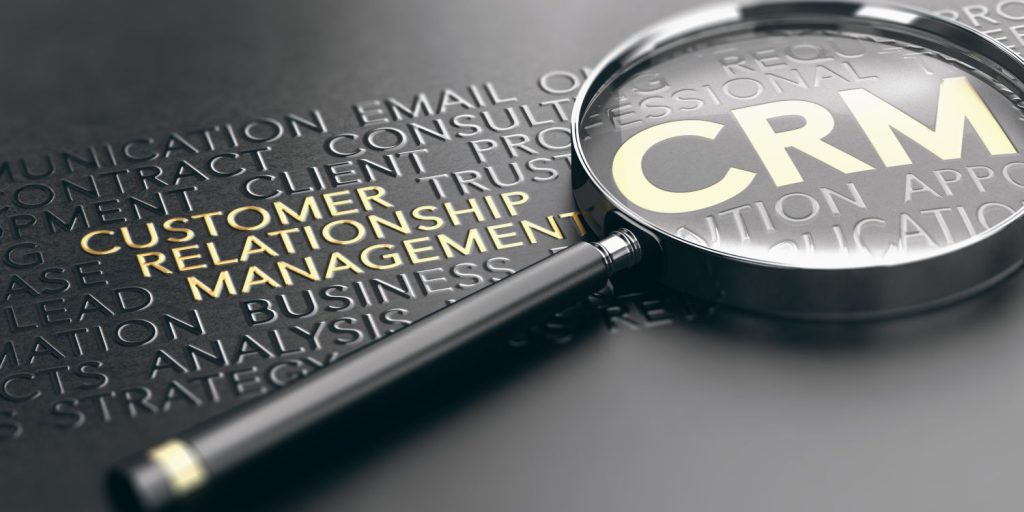
Automation is a key target for many businesses as they try to streamline their processes and improve efficiency. Implementing a CRM system is a good way to achieve some of these goals, but a successful CRM implementation is a difficult task for businesses to undertake and the first stage is to start with the appropriate planning.
This article covers the steps to increase your chances of a successful CRM implementation.
Build a CRM Implementation Team
At the very least, your CRM implementation team should include:
- Project manager to lead the whole project
- Data analyst who will be responsible for data cleansing and migration
- CRM Customisation team
- Representatives from all key user groups
- Experts in the chosen CRM platform
Create A CRM Implementation Plan
Your CRM plan breaks down the project into manageable stages with key milestones which will include:
- Documenting the existing processes
- Listing existing problems and issues
- Defining new requirements
- Conducting a risk assessment
- Implementing the CRM configuration
- Data clean-up and migration
- Integration with other systems
- User training and engagement
- Detailing new procedures
- User testing
- Go-live (maybe phased)
Forecast a CRM Implementation Budget
It is important to plan for everything, including reduced productivity for the staff assigned to the project. This will include:
- Consultancy fees
- Additional data migration services
- Training and documentation
- Reduced productivity
- CRM platform licensing
- CRM support
CRM Data Migration
Before migrating, you must cleanse your data of any out-of-date information as altering the data once it has been uploaded can be challenging, as the new CRM system will be storing the data in a different way.
If this is your first CRM implementation, then you must construct the data in a way that it can be easily uploaded to your new system.
Note that if the process of cleaning up the data and then migrating it takes too long, you will end up with a CRM containing out of date information. So, plan a process whereby you pull together the latest information from all the of the sources, merge it and then load into the new system very quickly just before you “go live” so the information is up to date.
Data clean-up
During the data clean-up process you may be pulling together data from various sources and you can encounter issues such as:
- Incomplete records
- Outdated or incorrect data
- Duplicated data
- Information from multiple sources that is inconsistent
Data migration
Once you have all your data cleansed and in one place, it’s time to load it into your new CRM. This is best done in an automated manner but some or all parts may be manual due to the structure of the dated to be uploaded.
CRM Customisation
It is likely that the installed CRM system will have to be customised for your business needs but do not over-complicate the situation.
Some things to customise are:
- Dashboards
- Pipelines
- Data segmentation
- Custom fields
- Workflows
- Custom user permissions
- Custom reports
Integration with Other Systems
It is probable that your new CRM system will have to integrate with other IT systems such as:
- Email platform
- Social media accounts
- Website
All these items must be included in your plan.
CRM User Training
The most successful training tends to be a mix of face-to-face, online, practice and expert support.
CRM System Testing
CRM testing is the verification that your CRM system is fully operational and delivers against business objectives before and after the software is installed, updated, or upgraded.
You will need a coherent CRM testing strategy in place from the planning stage through to go-live.
Documentation of Procedures
If you’re customizing the CRM, then the vendor’s documentation must be updated to include your bespoke procedures.
CRM Go-live
It is vital that you are properly prepared for the launch of your new CRM system. Many organisations try to implement the whole new system in one go but having a phased approach over several stages can reduce the risk of a poor implementation. Your CRM go-live plan should include:
- Staff availability
- Identifying metrics for project evaluation
- Creating a communication strategy for the new system
- Post go-live support
It is also important to have a ticketing system where users can log issues and errors.
Evaluate the Success of your CRM Implementation
After your new CRM system goes live, it is important to check that it is being used properly. This can include:
- Users not updating the system properly or still using the old CRM
- The quality of data being added to the CRM system
- If business metrics such as closing more leads or cross selling are being achieved then you can be more confident the new CRM is adding value.
CRM Support and Communication
Providing ongoing support and communication for all users after go-live helps establish a successful CRM implementation in Bulgaria.
Ongoing support is vital for user adoption and process improvements, and as issues emerge, they will need to be resolved quickly.

